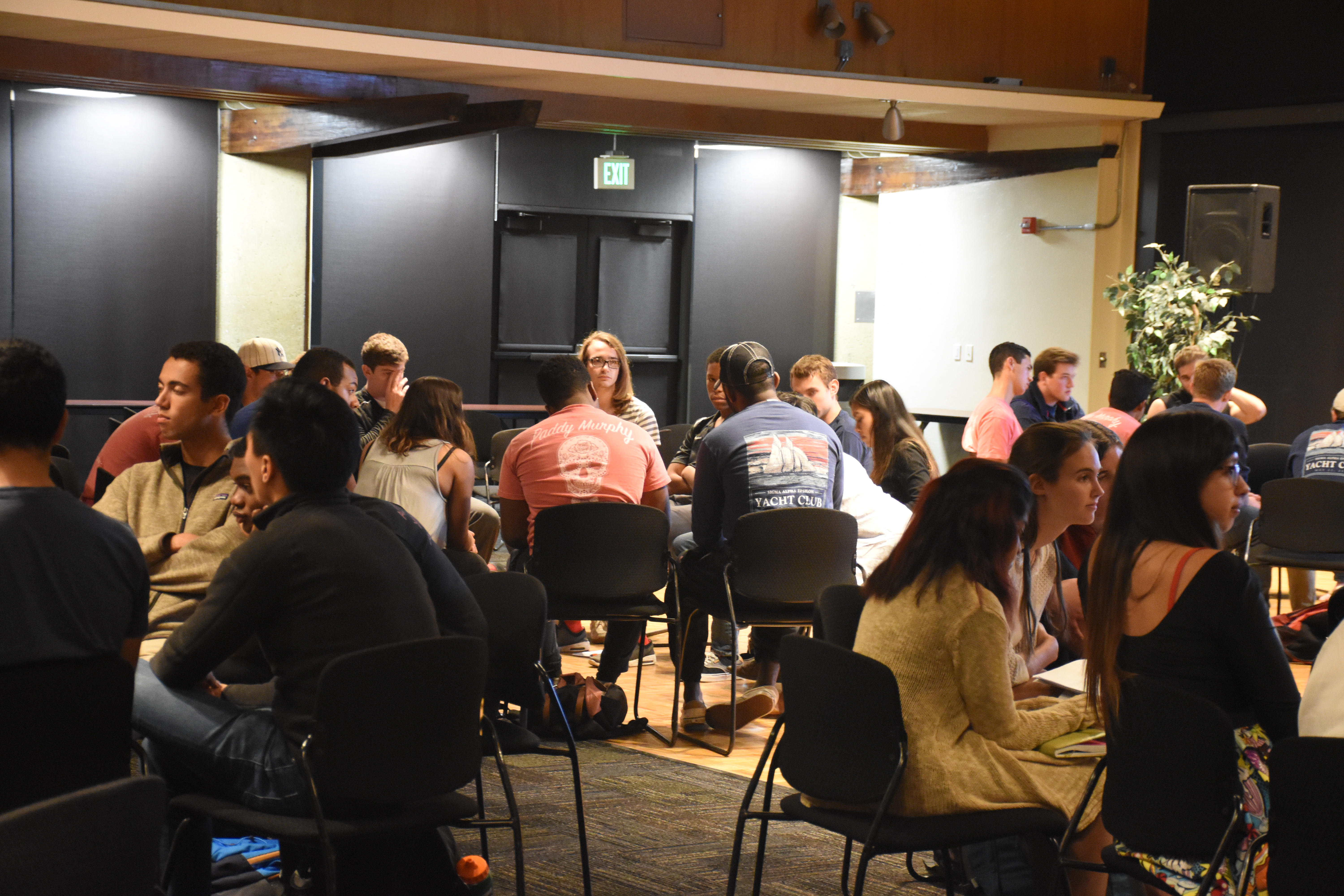
The Stanford Greek community participated in an Escalation Workshop in partnership with the One Love Foundation last week, representing an effort to promote awareness of and protection against relationship violence.
The workshop took place on Oct. 19 and consisted of a 40-minute film viewing followed by small group discussions. The film featured a fictional account of an abusive relationship, covering topics ranging from jealousy and controlling behavior to stalking and physical violence.
The One Love Foundation was founded in 2010 in honor of Yeardley Love, a student at the University of Virginia who was murdered by her boyfriend. The organization works with young people across the United States to raise awareness about the warning signs of relationship abuse.
Attendee Shanta Katipamula ’19 cited the intimate discussion format as one of the strongest features of the workshop.
“It was great to have everyone at this base point,” Katipamula said. “We all watched this video together so we all had something to talk about, instead of trying to force people to draw on personal experience or anecdotes.”
Mackenzie Yaryura ’17, the chapter president of Chi Omega at Stanford, organized the workshop after learning about One Love from Melanie Sperling, the foundation’s Bay Area regional coordinator.
“I thought it was a very compelling story, which unfortunately comes from a true story,” Yaryura said. “Stanford is a place where we’re so used to putting on a perfect façade that it’s really important to start talking about these issues, because if we think we have to be great in academics and extracurriculars and jobs, then why wouldn’t we think we need perfect relationships? And if we don’t talk about them, then things like this happen.”
Yaryura originally planned to bring the event only to Chi Omega but decided to expand the event to the whole Greek community, increasing the number and diversity of attendees.
“I really appreciated … having [the fraternity members] be part of the conversation,” Katipamula said. “I think it was great that it was not just a single-gender space, that everyone was involved. This is everyone’s issue, not just a women’s issue.”
The workshop stressed the importance of remembering that its content applied to everyone regardless of personal experience or gender.
“I think probably most people know someone that’s been abused, but they might not know that they know someone that’s been abused,” Yaryura said.
Among other topics, participants discussed the question of how to best support a friend in an unhealthy relationship.
The program also featured a short video titled “Because I Love You,” which gave examples of phrases often used by abusive partners and trained the audience to recognize them as warning signs.
Though this is the first Escalation Workshop that Yaryura has overseen, she hopes to introduce similar programs to a greater portion of the Stanford community in the future.
“I think events like this are really important,” Yaryura said, “and the hard part is showing people that it’s worth their time.”
Contact Emily Jusuf at ejusuf ‘at’ stanford.edu.